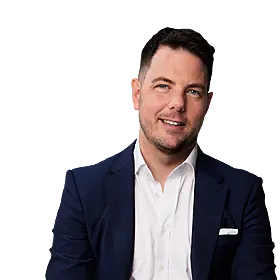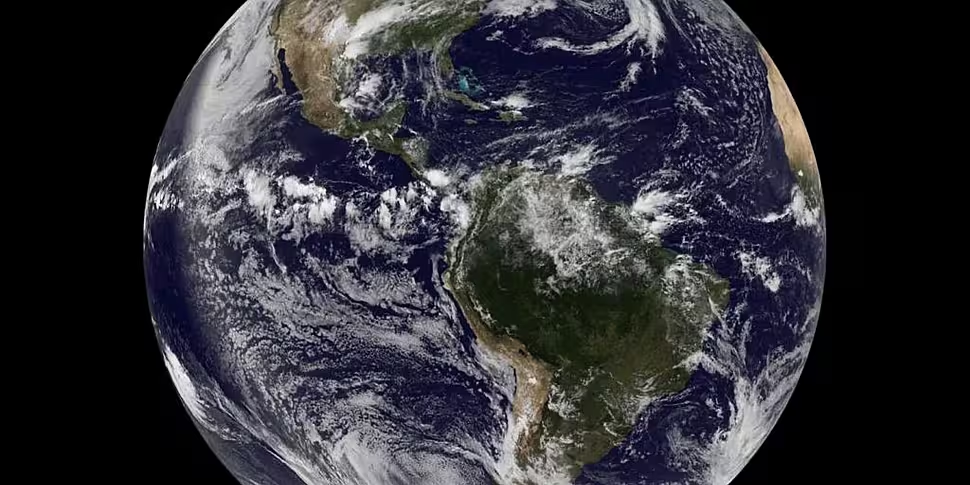‘This is not just a once in a generational conversation. I think it's more than that. It's a civilizational scale set of questions about how society is organised.’
Andrew Zolli is well placed to cast a big-picture perspective on our current circumstances and considerations for the future.
He’s Vice President at Planet Inc which has deployed in space the largest constellation of earth-observing satellites in history, imaging the whole planet every day in high resolution.
So this planetary viewpoint that’s put forward is based above and way beyond any standard birds-eye view.
‘We like to use outsized metaphors when describing large events,’ Zolli told the Taking Stock Podcast ‘so people will tell you that this event is a seismic event in history, and they're right. It's not only metaphorically a seismic event; it's a literal seismic event. Seismologists around the world from China to New York to Dublin to Italy can literally measure the quieting of the planet as human beings have stilled ourselves upon its surface. So the normal rumble of trains and planes and automobiles of human habitation have dimmed across the planet, and it's hard to wrap our heads around an event of that scale and magnitude. It's certainly the largest disruptive event of our lifetimes - without question.”
Listen and subscribe to Taking Stock with Vincent Wall on Apple Podcasts, Google Podcasts and Spotify.
As the author of Resilience: Why Things Bounce Back; Zolli can also call upon that star-sky thinking to map a potentially positive road for recovery to help us bounce forward from the shock we’ve suffered in terms of public health, economic recession, social distancing and political division.
“When you find yourself in a ditch, there's two possible paths out of the ditch. You can back yourself back up onto the road you were on, or you can try to press forward over into the next lane. You know that the argument that we'll have is not between Left and Right; as they have been historically thought about between Conservative and Progressive - the words we would use in the United States to describe those arguments - but between Open and Closed, between Forward and Backward. And it's important to say that when you're in the ditch; the rational response to want to back-up out of the ditch and go back to the way things were is rational. That's a completely rational and to be respected perspective. It's also rational to say; ‘no we can't go back.’ That's the road we skidded-off in the first place. We have to go to the next road, and of course the way you really get out of a ditch is you rock the car back and forth, forward and backward until you find your footing and go one way or the other. That discussion between forward and back, open and closed is going to be with us; not just now but it's going to be with us for the next generation because we are now in what you might call the long emergency.”
So on that metaphorical basis put forth by Zolli; will our recovery be directed further forward to diverge on a different route? Will we return to the road that’s been long travelled? And what in the end will have made all the difference?
If it’s a question of what’s possible; ultimately of course it’ll come down to politics. It’ll be driven by the leadership displayed at the local level and across the global landscape.
Zolli contends that the most difficult and immediate challenge for political leadership is giving clear consideration for the complexities involved in emerging from the lockdowns. To demonstrate a responsible path at a safe pace - while balancing the different risk assessments and uncertainties involved.
‘Human beings loathe uncertainty. We react to it as spiders crawling on our skin. Unfortunately, it's our own appetite or lack of appetite for complexity and ambiguity that often limits our choices. Another aspect of this that we have to contend with is ‘Risk Homeostasis’ which is a very interesting concept. It was first identified by a number of psychologists and people who study risk. And it posits that all human beings, you and me, have a kind of innate level of appetite for risk so that we feel comfortable taking a certain amount of risk in our lives. You can sort of think about it like water going through a sluice gate. If the water is blocked from one channel; it will find a way to another channel. Human beings, if blocked from expressing their natural appetite for risk in one area, will start to take it in another. So for example, paradoxically in places where bicycle helmets have been mandated in places with a lot of bicycle riding; what you find is that drivers will drive faster and closer to marked bike lanes. When cyclists are required to wear helmets; they presumed that the cyclists are safer than they actually are and so they adjust their behavior; not to drive as slowly next to the cyclist as they would like to. There's a famous rule called ‘Bill Booths Rule Number 2’ in skydiving which says that the safer skydiving equipment becomes; the more risks skydivers will take - in order to keep the fatality rate constant. Because that's the job of skydivers; is to engage in risky behavior. That's the whole point of the exercise. So if it becomes safer; we do more dangerous things.’
That psychology which Zolli describes could perhaps explain why road accidents here have risen disproportionately over the last few months - relative to the reduced traffic volumes. So in terms of considering those different levels of risk and competing interests to then choose the correct path; Zolli doesn’t envy any political leader who has to perform the balancing act.
‘What we've suddenly done is say we have to take the enormous complexity of human lived experience and the trade-offs associated with those experiences, and we have to balance them on the head of a pin. And by definition; you can't. It's an impossible formula to resolve with precision. I think there are certainly some important elements to getting it right. Having the right kind of respect for expertise. Listening to public health experts to give us a sense of what the risks are. Hearing from our constituencies and trying to understand what's the most efficient and effective path to keeping people safe while opening up our activities. Finding middle-grounds.’
Of course finding those middle-grounds politically has become increasingly problematic and there’s a growing impasse in politics and governance on the global level. That’s just one part of what Zolli sees as a series of four connected crises that are happening concurrently. They include the current emergency in public health caused by Covid-19, the contraction of economies, and the extreme nature of our effect on the climate.
'Cutting through all of them is the climate crisis. It's the crisis of the loss of nature and the question of; how do we bounce forward to a more sustainable world, no matter what elements of the past we carry forth with it. So we have all these connected crises and we're going to have to work on all of them. This is a kind of all-hands-on-deck moment for every society in the world to plan to work on those things, but we can't just blindly jump into the future. We have to figure out how we create the right kinds of continuities to the past, connections to our values and our heritage and our rituals and the things that make us uniquely us. So there's a lot of negotiation in there and a lot of navigating this disruption. But one of the things we like to say about this is; we can't fix what you can't see. Many of these challenges are not really salient for human beings because we don't encounter them on a daily basis. You don't see Climate Change walking down the street on a Thursday. You have to take a larger macroscopic view. But as soon as you do; it becomes obvious what to do. As an example; we can see every act of deforestation happening through our satellites in the Amazon - as it happens every day. We lose 40 football pitches an hour to deforestation. We've lost a number of them just as we've been talking here. And while we can see the deforestation; we can also see the illegal roads that go in just before the next round of deforestation occurs. We can see the pre-indicators of the next round of change, and that gives us a window to interdict and stop that behaviour right at the point where it's likely to happen. And because we're doing this from space; we can see everywhere. So it's not like you can move all your assets and activate illegal deforestation down the road somewhere. Because we can see down the road. So these tools are going to be essential for creating accountability for enabling us to pay for conservation to allow us to pay for performance to help build the kinds of indicators that we can use to drive the economy in greener and cleaner and more sustainable directions, and what has happened now is that we have given residents of Delhi, India, and in China and across the world, a glimpse of what a lower carbon healthier future is.’
Zolli cites a remarkable study from a scientist at Stanford University which showed how stepping back to this macroscopic view can cut through to a potentially clearer insight of the hidden health costs that our path up to now has been taking.
“The study found that during the period of the peak Covid crisis; China lost something like 5000 people, a little bit less but around 5000 people. The Stanford University study estimated that during the same period, by clearing the skies and by shutting the factories temporarily; the Chinese likely saved the lives of 4000 children under 5 years old and 73,000 people over the age of 70. Just by clearing the air because air pollution is one of the most deadly factors for human morbidity. So we've given people this briefest glimpse, and it's been intensely painful and awful to get to, but we've given them a glimpse of what the future could be like. Now we expect that there will be political pressure, and a kind of human yearning for that future that we can now use these technologies to help deliver.’
So what should we take from this picture put forward for our future path? A lot of it is as Zolli admits; ‘hard to wrap our head around’. Is it a hope that our children will grow up in a world where the challenge of climate change will finally be more seriously considered? Is it a hope that leaders will emerge who can build more of those middle-grounds? Is it a hope that the future of care at all ages and levels will rise in our priorities and public provision? That the line between work and home will be redrawn across the board? That wasted hours squashed on a train or stuck in traffic will be reclaimed for the school-run or simply more sleep? That 9-5 will become as outdated as the typewriter? That the supply of housing in our major cities will be replenished over time with unwanted office space or unused AirBnB stock? That our streets and shared spaces will be permanently redesigned to serve those taking their time rather than those just travelling through? Or will we just reverse onto the old road?









